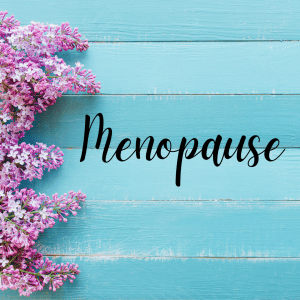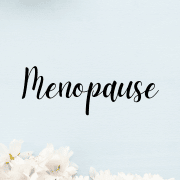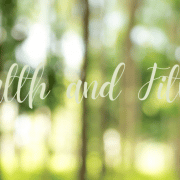Over the course of six blogs, we are looking at Menopause. Why? Because so many women go through it, without understanding the changes, and how they can manifest. I was diagnosed with burnout back in 2011. I realise, with hindsight, that menopause was a major contributing factor to my symptoms and mental state. Are you in a similar situation? We can have a much better transition if we have a better understanding of menopause. We can learn to work with our bodies and find our personal path.
In this blog we will be talking about the “hidden gift of menopause” and what positive elements can come from the experience.
Why do we view menopause so negatively?
When many women think of menopause, it is most likely negatively. We always hear about the dreaded menopause and its nasty symptoms. Not to mention the changes and the stress it causes. It is almost like we view it as a tragic, inevitable end to our youth. But is it all negative, or are there actually some positive elements that the whole experience can bring to us?
One thing we might think about, when we approach menopause, is that we will lose our youth and beauty. By today’s beauty standards, it is almost as if we must stay young to be desirable. Western culture seems to glorify beautiful, youthful women and dismiss others, which consequently puts pressure on women to stay young and pretty no matter what. Menopause is seen as a threat to that, which is where the negative narrative surrounding menopause lies. It is important to remember that this is just how Western culture views it, and that in other cultures and countries it may be seen in a completely different way. And that also, it is not just physical beauty that matters.
How do other cultures view it?
While we may suffer with the negative views and taboo around menopause in Western countries are plenty of cultures that have completely alternative perspectives on what it means. For example, the Japanese culture does not worry about menopause at all. While we associate the word menopause with symptoms and unhappiness, the Japanese do not. In fact, their word for menopause is ‘konenki’, which broken down means something much greater than just menopause. Ko means “renewal or regeneration”, nen means “years”, and ki means “season or energy”. In English, it does not translate to something quite so inspirational as this. And in China they have a similar attitude, calling it the ‘Second Spring.’
Indigenous cultures, such as the M?ori in New Zealand, have a beautiful take on menopause. Instead of being something to dread, they see it as the transition from being a member of society, to becoming a spiritual elder. Mayan women believe that entering menopause gives them their access to shamanic abilities and healing powers. They have ceased to have children and will now focus on taking care of their children’s children and the community. Therefore, becoming a well-respected and useful member of the community. There is a quote that Native American and other Indigenous people say which is “The blood you no longer bleed is retained as wise blood.” Perhaps we could learn something from them and change how we personally view menopause? You can read more about different cultures surrounding menopause here.
What is the hidden gift of menopause?
We have all been through difficult situations that left us feeling stronger or wiser. Many women feel that menopause has the same effect. All the unresolved difficulties that we have papered over during our life, to be able to survive and carry on, are magnified in menopause, forcing us to deal with them. As a result, often relationship crises are a ‘side effect’ of menopause. And any past physical symptoms can also come up to be addressed.
Another way of looking at it is that we start out in life as a caterpillar. Menopause is the chyrsalis stage, where we transform into our original blueprint – a butterfly. The shift in hormones challenges us to give up old, unhealthy caterpillar attitudes and behaviours, and become our True Self.
This explains why many women come out the other side of menopause saying they’ve never been happier or more fulfilled. It’s when women come into their power, worry less about what others think, become more assertive, and find their voice. Some even make serious life changes according to what it is they need or want to really thrive. Some learn to stop giving so much of themselves to others and focus more on their own path.
or more fulfilled. It’s when women come into their power, worry less about what others think, become more assertive, and find their voice. Some even make serious life changes according to what it is they need or want to really thrive. Some learn to stop giving so much of themselves to others and focus more on their own path.
Another medical term for menopause is ‘climacteric’. It is used to describe the decline in fertility in women during this time. And in botany this term denotes the time when a fruit reaches its full ripeness and sweetness. This is a perfect way to view menopause: A ripening into a mature, wise woman, full of life.
So really, there are many positive things we can take away from menopause. It is not all doom and gloom! I hope we can start normalising conversation about menopause, and teach those who have yet to go through it, that it is not something to fear. That it is something to embrace!
Thank you to Sarah Davison for the contribution and information. Sarah can be reached at thrivehomeopathy.com.
Sarah offers a free perimenopause assessment that allows you to check how many of the 49 possible symptoms you have. Click here to take the assessment. You do not have to suffer alone! You can also follow her on social media at @naturalmenopauseexpert
- Taboo and Ignorance
- Menopause and Stress
- Natural VS HRT – Part 1
- Natural VS HRT – Part 2
- Menopause in the Workplace
- The Hidden Gift of Menopause












